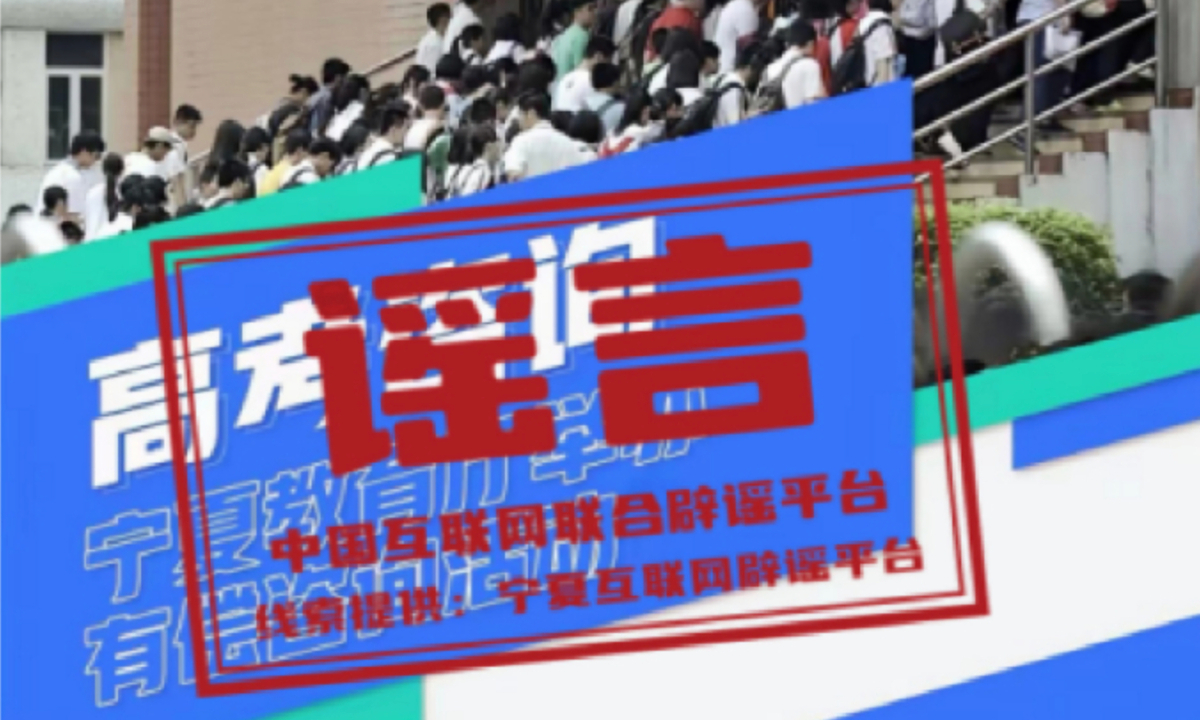Online rumors in June focus on flood control and disaster relief, college admission, job market: platform

Photo: piyao.org.cn
Reviews and summaries of data monitoring and netizens’ reporting on online rumors by China Internet Joint Rumor Refutation Platform show that internet rumors circulating during June primarily focused on hot topics such as disasters, exam and recruitment policies and travel information.
According to the platform, rumor mongers used tactics such as fabrication, exaggeration and misrepresentation to create falsehoods, disrupt public perception, interfere with flood control and disaster relief, and disrupt the orders of exam and recruitment work, which have harmed the public interests and caused a negative impact.
In terms of fabricating and spreading disaster-related rumors that disturb flood control work, individual we-media accounts and netizens took the opportunity as many regions across the country have fully entered the flood season in June with natural disasters occurring frequently to fabricate or exaggerate disaster situations, disrupt the normal orders of disaster relief and causing public anxiety and panic.
Rumors such as “floodwater flowing into underground parking garages in Zhengzhou, Central China’s Henan Province” and “heavy rains triggering mudslides that destroyed numerous homes in Guilin, South China’s Guangxi Zhuang Autonomous Region” either distorted facts and rehash old news, or fabricated stories maliciously, seriously misleading overall public perception of actual events.
In addition, rumors related to recruitment of colleges and senior high schools often involved risks of fraud and harmed the public’s interests. Some institutions impersonated official authorities to engage in events such as paid consultation activities for college entrance examinations and admissions to scam candidates and parents.
Some other institutions and individuals made use of social media to scam job applicants of “service fees” and “consultation fees” during the job-hunting process.
Furthermore, tourism-related rumors also have been increasing as the vacation peak season approaching, which disturbed the public’s opinions.
The rumor saying that “each person receives a subsidy of 3,169 yuan for traveling to Southwest China’s Yunnan Province” seriously misinterpreted Yunnan’s tourism policy which is entirely false publicity meant to deceive the public. The rumors of “Mount Qomolangma being closed indefinitely” and “merchants spreading nails on the Duku Highway in Usu city, northwest China's Xinjiang Uygur Autonomous Region to earn money for tire repairs” are either misunderstandings or distortions and sensationalism, causing public concerns over the troubles of the local culture and tourism industry.
In addition to these misleading rumors, some we-media and netizens fabricated social events, concoct false information, mislead public understanding, and disrupt social order. The rumor about “a livestock farm in Deyang, Southwest China’s Sichuan Province, falsely reported inventory to fraudulently obtain 200 million yuan in subsidies” fabricates facts and seriously damages the credibility of policies benefiting the farmers and agriculture. Other rumors such as “Yongfu Temple in Hangzhou, East China’s Zhejiang Province being sold for 70 million yuan” used sensational headlines to maliciously attract attention, causing negative social impacts.
As the peak of the summer vacation travel season and college admissions approaches in July, rumors and scams related to people’s livelihood such as travel, traffic safety, enrollment policies, and job markets may appear more frequently. China Internet Joint Rumor Refutation Platform reminded the public to maintain a calm, rational and objective attitude, effectively enhancing their abilities in identifying, distinguishing and preventing rumors.
Global Times
